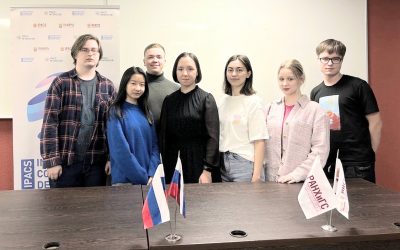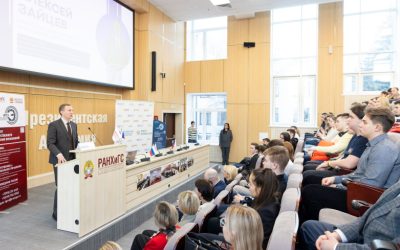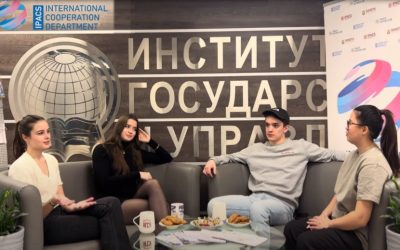Description
The program has been launched with the assistance of the two chambers of the Federal Assembly of the Russian Federation and is oriented towards training of managerial personnel and leading experts in the organizations and institutions of parliamentary type overseeing international contacts.
Entrance examinations: the examination in the form of a principal subject test on a hundred-point scale.
Sample of the writing test
The field of professional activity of Master’s students:
- state administration represented by the legislative/representative branch of power at the federal level and within the constituent entities of the Russian Federation (elective officials, assistants of elective officials, staffers of legislative assemblies);
- the sphere of management in the state and municipal institutions – structures supporting parliaments, parliamentary activity, establishments of the inter-parliamentary regional and international integration organizations with the participation of Russia;
- municipal management and local governance – elective heads of municipal authorities, deputies of the local representative bodies, employees of these offices, offices of the city structures working with the municipal and public authorities;
- the sphere of management in non-profit organizations; heads and experts in establishments of pro-parliamentary type, in the organizations interacting with national and supranational parliaments;
- the sphere of management in other organizations, including big companies, professional associations of employers, etc., i.e. in the positions of public relations with the state authorities and citizens.
Areas of the Professional Activity of Master’s Degree Students:
- federal state authorities (the chambers of the Federal Assembly of the Russian Federation, divisions of the Government of the Russian Federation, ministries and departments engaged in lawmaking activity, state secretaries and their personnel);
- government bodies of the subjects of the Russian Federation (representative/legislative authorities in the subjects of the Russian Federation; the divisions of the executive branch of power in the subjects of the Russian Federation involved in the process of law-making and regulatory activity);
- local authorities are local deputy assemblies and their agencies, heads/deputy heads of municipal authorities, heads and leading experts in the divisions of municipal management;
- state and municipal agencies, state-financed organizations – heads of the organizations providing the procurement of parliamentary structures, including federal state unitary enterprises, state unitary enterprises, municipal unitary enterprises;
- institutes of civil society are offices of parliamentary parties, leaders of non-governmental organizations and movements, leaders and activists of ‘youth parliaments’, progressive associations (sports, patriotic, innovative, implementational, etc.);
- organizations of the public sector are offices (divisions for communication with authorities and institutes of civil society, in the companies with the state share, large and medium-sized corporations);
- non-profit organizations – heads and the personnel of the humanitarian and social funds, professional associations, analytical and infrastructure organizations;
- other organizations, divisions for communication with state authorities and citizens – leaders and leading experts of professional unions; activists from among the representatives of the creative intellectuals; specialists of the consular establishments abroad, employees of the offices of Authorized representatives of the President of the Russian Federation in federal districts; specialists for communication with parliamentary structures in military and other special organizations.
Competences and advantages
- face-to-face training courses and field classes, work with electronic manuals, probation in the organizations/institutions of parliamentary type;
- traditions of the Academy in the training of senior executives;
- IT resources for the acceleration of information exchange and obtaining skills of work in the field of modern communication technologies;
- interest in learning a foreign language as a tool for work with international documents (a second language is supplementary);
- club communication in the student’s ‘Parliamentarian School’;
- on-site language practice (in youth camps, probation periods abroad).
The results of studies on relevant master’s programs are measured by the competences acquired by the graduates, i.e. by the capability to apply knowledge, skills and personal qualities as dictated by the needs of professional activity.
Common cultural competences:
- capacity for abstract thinking, analysis, synthesis (OK-1);
- readiness for action in non-standard situations, readiness to bear social and ethical responsibility for the taken decisions (OK-2);
- readiness for self-development, self-realization, the use of creative potential (OK-3).
All-professional competences:
- capacity for analysis, planning and organization of professional activity (OPK-1);
- preparedness to oral and written communication in Russian and in foreign languages to perform tasks in the professional field (OPK-2);
- readiness to lead the personnel in the area of one’s professional activity, being tolerant to social, ethnic, confessional and cultural differences (OPK-3).
Professional competences:
- organizational and administrative activity:
- ability to use the technologies of personnel management; abilities and readiness to form teams to solve problems (PK-1);
- organizational abilities, ability to take organizational and managerial decisions including crisis situations (PK-2);
- ability to plan and organize the work of a public authority, to develop the organizational structure adequate to the strategy, targets and tasks, internal and external conditions of activity of the public authority, to carry out allocation of functions, powers and responsibility between the executors (PK-3);
- ability to analyze and plan activities in the area of state and municipal administration (PK-4);
consulting and information and analytical activity:
- ability to carry out verification and structuring of information obtained from different sources (PK-11);
- ability to use information technologies for resolving various research and administrative tasks (PK-12);
- ability to assess information critically and to take the decisions based on the analysis and synthesis (PK-13);
- scientific, research, and pedagogical activity;
- awareness of the methods and specialized means for analytical work and scientific research (PK-18);
- awareness of the methods of analysis of the public sector economy, of macroeconomic approaches to the explanation of functions and activity of the state (PK-19);
- mastering the techniques and tools stimulating cognitive activity (PK-20).







